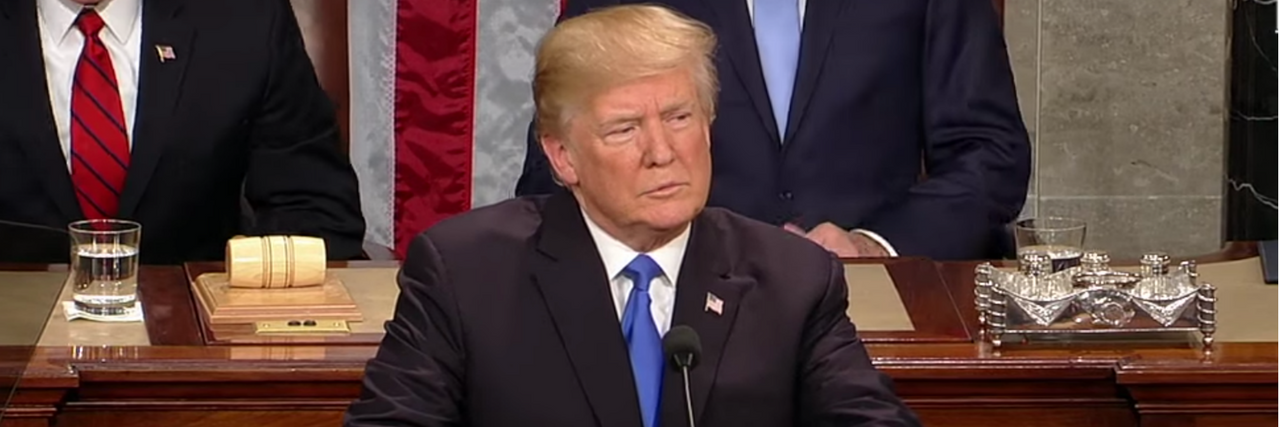On Thursday, President Trump’s proposal to lower drug costs for people using Medicare Part D, the prescription drug benefit for Medicare recipients, was revealed to the Associated Press. The news comes a week before Trump’s 2019 budget plan’s scheduled release. The proposal allows for those using the Medicare drug benefit to get a rebate from drug companies that are usually only given to insurance companies and “middlemen” like pharmacy benefit managers who work between insurers and pharmacies.
Pharmaceutical companies give rebates to insurance companies and pharmacy benefit managers to get their drugs covered under insurance plans, ensuring more people use the drug companies’ specific drugs. Rebates to pharmacy benefit managers are thought to be a reason for high-drug prices. Insurance companies typically use the rebates to lower monthly premiums for its customers, though Medicare beneficiaries still pay thousands of dollars a year in drug costs.
Medicare recipients are those 65 and older, younger people with disabilities and those with end-stage renal disease. While Part A of Medicare covers hospital stays and nursing home facilities, Part B covers preventative care, outpatient and doctor services, as well as medical supplies. Part D covers some of the cost of prescription drugs for those with Part A, Part B or both.
This change to the Medicare prescription drug benefit comes eight days after the Centers for Medicare and Medicaid Services announced a proposal to cut down on opioid prescriptions for people using Part D.
The budget would also allow for an expansion in “catastrophic” coverage for Medicare recipients who need high-cost drugs, so they don’t have copayments. Catastrophic coverage takes effect after beneficiaries spend $5,000 in out-of-pocket expenses in 2018.
On Friday, Trump signed a bipartisan budget bill after a brief government shutdown. The new budget will help accelerate the closing of the “doughnut hole” in Medicare, which is the coverage gap between a certain amount of coverage for drugs and before a recipient gets catastrophic coverage. The closure began with the Affordable Care Act. The bill also loosened restrictions on telehealth medicine for Medicare recipients, which Sen. Brian Schatz of Hawaii detailed in a Twitter thread.
WARNING THIS IS A WONKY THREAD: Tucked into the bill signed are the most significant changes ever made to Medicare law to use Telehealth. It will increase access and quality of care, and reduce costs using tech that’s already available. A few very cool examples here:
— Brian Schatz (@brianschatz) February 9, 2018
Right now lots of people have to drive to a hospital or clinic just to have a monitoring device put on some part of their body for a few minutes. This can and should be done in the home. This is huge for rural areas, the medically fragile, bad weather, and saves time and money.
— Brian Schatz (@brianschatz) February 9, 2018
Right now if you can’t get a specialist where you live, you have to drive or fly to where they are. With Telehealth everyone can eventually access the best clinicians whether they live in Laupahoehoe, Hawaii, or NYC.
— Brian Schatz (@brianschatz) February 9, 2018
Right now lots of folks don’t have access to psychiatry, asthma docs, dermatology, etc… With Telehealth this can be done via secure connection on a phone, tablet, or computer.
— Brian Schatz (@brianschatz) February 9, 2018
Imagine the terrifying moment when you think your parent or spouse may be having a stroke. Thanks to this law, more local hospitals may be equipped with stroke experts via telehealth who can move fast to diagnose the stroke and determine treatment.
— Brian Schatz (@brianschatz) February 9, 2018
While the government expands Medicare, the administration is still making an effort to reduce the use of Medicaid by imposing work requirements and proposing lifetime limits to Medicaid coverage.
Photo via whitehouse.gov

